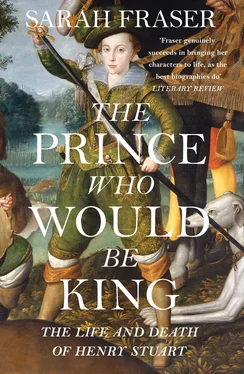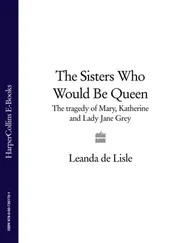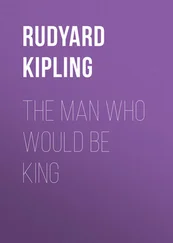Sarah Fraser - The Prince Who Would Be King - The Life and Death of Henry Stuart
Здесь есть возможность читать онлайн «Sarah Fraser - The Prince Who Would Be King - The Life and Death of Henry Stuart» — ознакомительный отрывок электронной книги совершенно бесплатно, а после прочтения отрывка купить полную версию. В некоторых случаях можно слушать аудио, скачать через торрент в формате fb2 и присутствует краткое содержание. Жанр: unrecognised, на английском языке. Описание произведения, (предисловие) а так же отзывы посетителей доступны на портале библиотеки ЛибКат.
- Название:The Prince Who Would Be King: The Life and Death of Henry Stuart
- Автор:
- Жанр:
- Год:неизвестен
- ISBN:нет данных
- Рейтинг книги:3 / 5. Голосов: 1
-
Избранное:Добавить в избранное
- Отзывы:
-
Ваша оценка:
- 60
- 1
- 2
- 3
- 4
- 5
The Prince Who Would Be King: The Life and Death of Henry Stuart: краткое содержание, описание и аннотация
Предлагаем к чтению аннотацию, описание, краткое содержание или предисловие (зависит от того, что написал сам автор книги «The Prince Who Would Be King: The Life and Death of Henry Stuart»). Если вы не нашли необходимую информацию о книге — напишите в комментариях, мы постараемся отыскать её.
NOW THE SUBJECT OF BBC2 DOCUMENTARY The Best King We Never Had
The Prince Who Would Be King: The Life and Death of Henry Stuart — читать онлайн ознакомительный отрывок
Ниже представлен текст книги, разбитый по страницам. Система сохранения места последней прочитанной страницы, позволяет с удобством читать онлайн бесплатно книгу «The Prince Who Would Be King: The Life and Death of Henry Stuart», без необходимости каждый раз заново искать на чём Вы остановились. Поставьте закладку, и сможете в любой момент перейти на страницу, на которой закончили чтение.
Интервал:
Закладка:
Anne’s chariot retreated and a ship over twenty feet long was hauled in. Neptune stood at the prow and ‘marine people’ hung from the sides, their bodies decorated with the sea’s riches – pearls, corals, shells and metals ‘very rare and excellent’. The ship boasted thirty-six brass cannon and was gaily decorated with red masts and ropes of red silk, pulleys of gold, and silver anchors. On her foresail a painting of a huge compass billowed, pointing to the North Star. Europe could set its course by James and Henry.
Sugars, sculpted and painted to resemble seafood, lay in heaps on the decks – ‘herrings, whitings, flukes, oysters, buckies, lampets, partans, lobsters, crabs, spout-fish, clams’. Sea maidens distributed the feast among the guests. From the galleries at the end of the room, the hautbois began a tune, joined by the viols, recorders, flutes, and then scores of choral voices all in deafening counterpoint to each other, singing in praise of king, queen and the prince of glorious expectation, Henry Frederick Stuart. As the music reached a crescendo, each of the thirty-six cannon unleashed a volley. The walls of the great hall thundered and echoed. The infant must have leapt from his skin.
From Stirling to St James’s Palace in London, Prince Henry would learn a humanist truism: the encounter with the ancients in whatever form you find them – in coin or word or image, in plays, masques, and pictures – will endow you with their qualities of rationality, eloquence, glory, wealth, virtue, and political wisdom. Europeans communicated through these symbolic languages. James and Anne used this language on Henry’s christening day to demonstrate the sophistication and merit of the dynasty sitting in wait for the death of Elizabeth Tudor.
Next morning the celebrations continued, as guests made their way in groups into Edinburgh. Others headed for the port of Leith and their ships. Ambassadors penned their accounts and examined the quality of the gifts of gold chains King James sent for their masters. Meanwhile a poem, ‘ Principis Scoti-Britannorum Natalia ’ (‘On the Birth of the Scoto-Britannic Prince’), by Andrew Melville, one of Scotland’s leading Presbyterian churchmen, reminded them of the true significance of Henry’s birth for Christendom:
Those who were divided by the Tweed …
The rule of Scoto-Britannic sovereignty now joins together,
United in law and within a Scoto-Britannic commonwealth,
And a Prince born of a Scoto-Britannic king
Calls them into a single Scoto-Britannic people.
To what great heights will Scoto-Britannic glory now rise
With no limits set by space and time?
By the time Elizabeth of England heard the word ‘Scoto-Britannic’ in this context for the fifth time in five lines, she was incandescent with rage. Chief minister, Robert Cecil, penned a letter on her behalf, pointing out that it verged on treason to say that James VI was ‘king of all Britain in possession’. James responded laconically that, ‘being descended as he was’ from Henry VIII’s sister Margaret Tudor, ‘he could not but make claim to the crown of England after the decease of her Majesty’. He was Elizabeth’s closest blood male heir.
James connived in having the poem broadcast as widely as possible and authorised the Royal Printer, Robert Waldegrave, to publish it. It enjoyed wide circulation in Protestant circles across Europe and was reprinted several times in Amsterdam.
Once Henry heads the united ‘Scoto-Britannic people’, the poem thundered on, he will lead them into the cosmic conflict against the combined forces of papacy and Spain to ‘triumph over anointed Geryon’. In Roman mythology, Geryon is the triple-headed monster guarding the cattle in the Underworld. And here Geryon meant Spain. Melville addressed the infant:
Your foot tramples the triple diadem of the Roman Cerberus,
Dinning out of Hell sounds with thunders terrible
From the Capitoline Hill.
The pope was ‘the Roman Cerberus’, the attack dog guarding the gates of hell. Cerberus belonged to Geryon (Spain), who fattened him with titbits of Spanish New World wealth. Melville combined classical motifs and an Old Testament prophetic tone so beloved of godly radicals, alert for signs their God willed them to complete the religious revolution.
Lurid propaganda perhaps, yet fear of popery drenched Protestant Europe. ‘It crossed all social boundaries; as a solvent of political loyalties it had no rivals.’ The destabilising range and power of that fear was heightened by the biggest problem facing Protestant Europe right now – the revival of militant Catholicism.
Hitting back, Melville promoted Henry as Christendom’s saviour. Born in obscurity in Scotland, he would lead the Protestants of a united Europe against the sprawling gold- and silver-engorged powers of Habsburg Spain, the Holy Roman Empire and the papacy in a battle for the soul of the ‘nation of Europe’.
‘The holy zeal of Christians … in their struggle against the anti-Christ’ had found their future leader.
THREE
The Fight for Henry
‘TWO MIGHTY FACTIONS’
It was pleasing for James to envisage the European scale of Henry’s destiny, but he and his advisers knew it might come to nothing if the king could not ensure order and tranquillity at home – where, the English ambassador Bowes told Robert Cecil, ‘the question of the Queen and her son’, is ‘a breach working mightily’.
Some even saw Henry’s wet nurse as playing a sinister part in the drama. Everyone knew a child imbibed the nurse’s character with her milk. When a messenger told Anne that Margaret Mastertoun had ‘become dry through sickness’, she feared the worst. But the drama soon passed. Whatever illness the wet nurse had, Henry had caught it, ‘but is now well again. The King coming, the Nurse prayed pardon.’ Her milk, however, had gone. ‘The old nurse being of the Countess of Mar’s choice,’ Bowes explained, ‘some seek to impute this fault to Mar.’ If abundant breast milk equalled loyalty, the withdrawal of it implied treason. The Mars found another woman to tend to Henry, but ‘the young Prince cried for want of’ his old nurse and refused to feed. Recovering but unsettled, he preferred to go hungry and risked weakening himself further.
Anne asked that ‘the keeping of the Prince’ be moved to Edinburgh Castle, where she might personally oversee his care and prevent his nursery woes escalating into real danger. But Edinburgh, the seat of government, religion, and plots, was felt to be a more dangerous place for the prince. James refused to hand over Henry’s care to her.
The queen’s initial misery at being deprived of her son now settled into a pulsing anger. ‘Two mighty factions’ formed: the king’s supporters – including Mar, his kinsman Thomas Erskine and Sir James Elphinstone – warning that Anne, Queen of Scots, schemed with the discontented Catholic ‘[Earl] Bothwell and that crew, for the coronation of the Prince and the departure of the King’. Sir John Maitland, the Scottish chancellor, spearheaded support for the queen. ‘What the end will be, God knows,’ sighed Robert Aston, an English agent.
The king tried to get the leaders of the factions, Mar and Maitland, to reconcile before the court but found that courtiers continued to put light ‘to the coal’ of the strife, standing back to ‘let others blow at it’. This ‘is the condition of this estate … Everyone shooting at others without respect to King or Commonweal, or the safety of the young Prince’, commented Aston.
From Whitehall, Robert Cecil pondered the implications for England if King James and his obdurate consort ascended the English throne. James’s apparent disinclination to suppress dissent and put his ‘Lords … to the horn’ left a question mark against his suitability as successor. Yet the Scottish king had settled Scotland as his forebears had failed to do. The child was a healthy male and, despite the unpropitious circumstances, there were whispers at court that he might soon have a sibling: ‘by all appearances [the queen] … is with child, yet she denies it’, agent Aston reported to Ambassador Bowes.
Читать дальшеИнтервал:
Закладка:
Похожие книги на «The Prince Who Would Be King: The Life and Death of Henry Stuart»
Представляем Вашему вниманию похожие книги на «The Prince Who Would Be King: The Life and Death of Henry Stuart» списком для выбора. Мы отобрали схожую по названию и смыслу литературу в надежде предоставить читателям больше вариантов отыскать новые, интересные, ещё непрочитанные произведения.
Обсуждение, отзывы о книге «The Prince Who Would Be King: The Life and Death of Henry Stuart» и просто собственные мнения читателей. Оставьте ваши комментарии, напишите, что Вы думаете о произведении, его смысле или главных героях. Укажите что конкретно понравилось, а что нет, и почему Вы так считаете.












